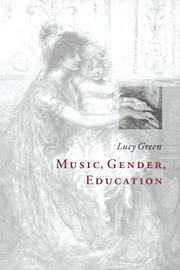1 - Introduction
Published online by Cambridge University Press: 20 November 2009
Summary
Rose-cheekt Lawra, come,
Sing thou smoothly with thy beawties
Silent musick, either other
Sweetely gracing.
Lovely formes do flowe
From concent devinely framed;
Heav'n is musick, and thy beawties
Birth is heavenly.
These dull notes we sing
Discords needs for helps to grace them;
Only beawty purely loving
Knowes no discord:
But still mooves delight,
Like cleare springs renu'd by flowing,
Ever perfect, ever in them-
selves eternall.
Thomas Campion, Observations in the Art of English Poesie (1602)Campion draws a likeness between music and women, describing each with highest regard as a mysterious, unattainable perfection. The beauty of Lawra, and the beauty of the music which she smoothly sings, ‘sweetely gracing’ each other, are intertwined. The ‘lovely formes’ are the forms of Lawra's bodily beauty as they ‘flowe’ from her ‘concent’ to thus display herself; and they are also the ephemeral forms of the music as it flows in time. ‘Heav'n is musick’, and the birth, the revealing, of Lawra's beauty is heavenly. A cloud appears: the dull notes. These are sung by men: ‘we’, who are not heavenly music and are not heavenly woman. Like the men who sing them, these mortal notes rely on dissonance for their fleeting survival. Only purely loving beauty, the music sung by Lawra, untouched by man's condemnation to history, knows no discord. Here the meaning of the words forces the third verse on to the beginning of the last, replicating movement, the movement of delight which it is expressing. Beauty is now the stream of water that for ever flows from the clear springs; the stream of life that flows from immortal woman's womb; the stream of time in which music articulates its forms.
- Type
- Chapter
- Information
- Music, Gender, Education , pp. 1 - 18Publisher: Cambridge University PressPrint publication year: 1997
- 1
- Cited by



